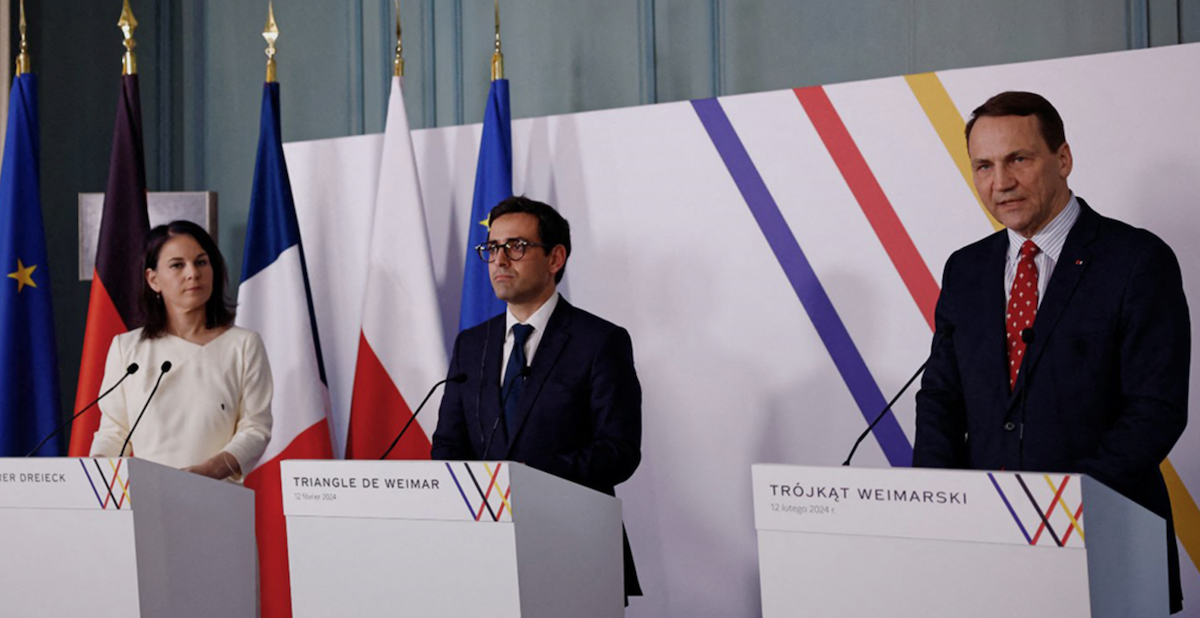
Weimar Triangle: Georgia needs new elections
The crisis in Georgia is caused by “the political course of the Georgia’s ruling party and its departure from the European path,” reads a joint statement issued by the foreign ministers of the Weimar Triangle countries—Germany, France, and Poland—on December 31.
In the statement by Annalena Baerbock, Jean-Noël Barrot, and Radosław Sikorski, it is noted that the final report on the elections by ODIHR/OSCE confirmed the three countries’ concerns that the Georgian parliamentary elections of October 26, 2024, did not meet the standards of an EU candidate country.
The statement also strongly condemns violence against protesters.
“The political course of repression and democratic backsliding by the Georgian Dream has in reaction led to a downgrading of our relationship at European and national level and a reduction of our assistance to and cooperation with Georgia’s authorities,” – the ministers concluded.
- Opinion: ‘Three conditions are essential for success of Georgia’s pro-European protests’
- ‘New elections needed’ – West responds to inauguration of Georgian Dream-appointed president
- Opinion: “US sanctions on Ivanishvili are partial, with tougher measures looming”
The text of the statement
“We, the Foreign Ministers of the Weimar Triangle, are seriously concerned about the political crisis which erupted in Georgia following the 26th October parliamentary elections and Georgian Dream decision to freeze EU accession process. The reason for the crisis is the political course of the Georgia’s ruling party and its departure from the European path.
We have repeatedly called upon the Georgian authorities to reverse their course and to return to the EU integration by upholding European norms and values and implementing reforms.
We strongly condemn last weeks’ violence against peaceful protesters, media and opposition leaders and recall Georgian authorities’ responsibility to respect human rights and protect fundamental freedoms, including the freedom to assembly and media freedom. We condemn in the strongest terms threats against political figures.
The political course of repression and democratic backsliding by the Georgian Dream has in reaction led to a downgrading of our relationship at European and national level and a reduction of our assistance to and cooperation with Georgia’s authorities.
Accordingly, we will implement the EU decision on ending visa-free travel for Georgian diplomatic and service passport holders and consider additional measures on EU and national level.
The OSCE/ODIHR final report about 26th October parliamentary elections in Georgia confirms our concerns regarding the integrity of the electoral process with widespread irregularities and improper investigations to respond to allegations.
Elections were not conducted according to standards expected from an EU candidate.
We call upon Georgian authorities to engage in a national dialogue with all relevant stakeholders to find a way out of the current situation and to restore public trust in Georgian democracy. The call for the implementation of OSCE/ODIHR recommendations and standards, including possibility of new elections, coming from parts of Georgian society, deserves to be addressed by authorities, in earnest dialogue with all political forces and representatives of civil society.
We reiterate our determination to support the democratic and European aspirations of the Georgian people.”
News in Georgia
